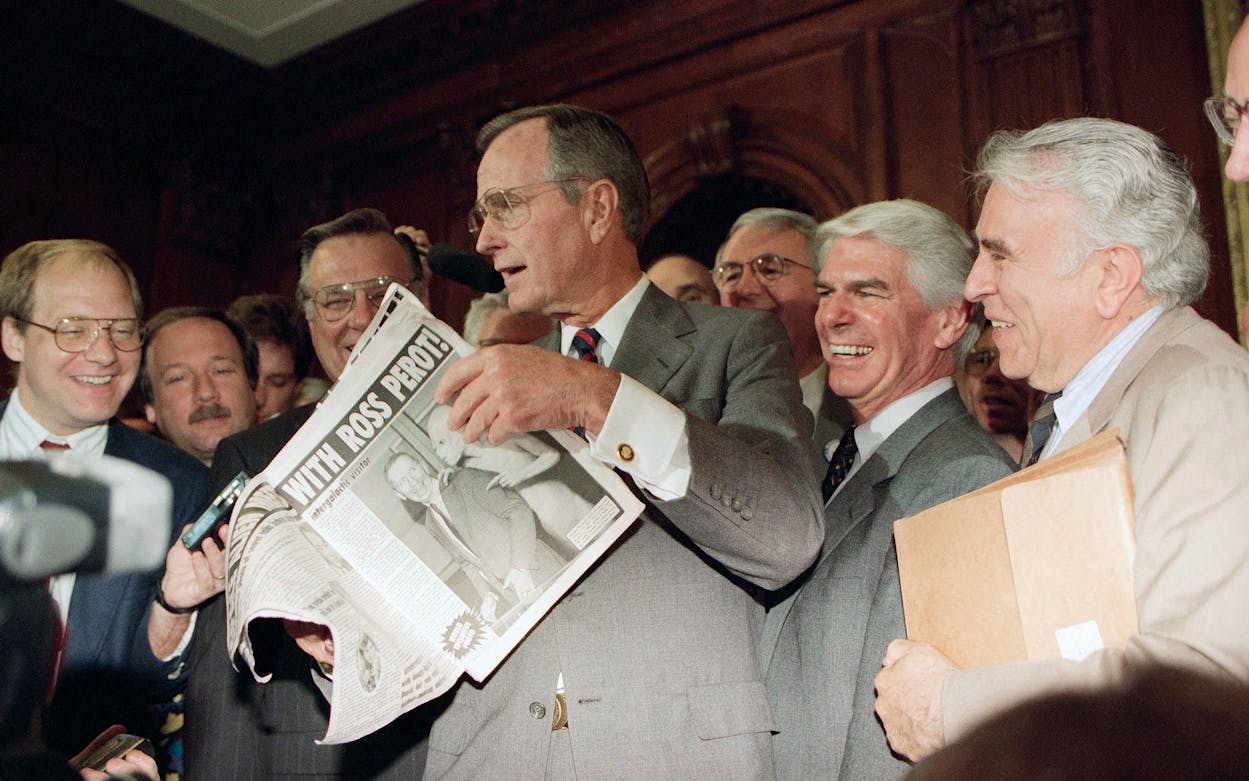Dallas billionaire Ross Perot may have once cost me a girlfriend, but, contrary to popular belief, he did not cost President George H.W. Bush his 1992 reelection to the White House.
Even before Perot mounted the most successful third-party presidential candidacy in U.S. history against Bush and Democrat Bill Clinton, he had been in and out of my life on multiple occasions. When I received my Eagle Scout award at age fifteen, Perot’s signature was on the congratulatory card because he was a major donor to Boy Scouts in Dallas.
Years later, as a young reporter in Jacksonville, Florida, I was dating a woman named Sam who never fully understood the erratic hours of a news reporter. One night when she planned to cook me dinner, breaking news kept me in the office. Thirteen men training as commandos had been arrested on the Crystal River near the Florida Power & Light nuclear plant. The rumor was that the men were being paid by Perot to train for a mission to rescue Vietnam-era prisoners of war still in Laos. There was no truth to the rumor, but I had to track down Perot’s spokes-folks in Dallas to get the official denial. By the time I got to Sam’s door several hours late, the meal was ruined, the door was locked to me forever.
Okay, so Ross Perot didn’t exactly cost me that relationship, but neither did he cost Bush his reelection.
Bush was in trouble from the get-go. The collapse of the savings and loan industry had thrown the nation into a recession, and Bush had broken a 1988 promise against increasing taxes as part of a budget deal with Democrats. National polling in late 1991 showed Bush running neck-and-neck with a generic Democratic candidate to be named later. Eventually, Bill Clinton emerged with his campaign staff focusing on reminding themselves of one idea: “It’s the economy, stupid.”
Perot entered the contest as an independent candidate, dedicated to ending deficit spending and opposing the North American Free Trade Agreement. That “sucking sound” you hear, he said, is the sound of jobs going south to Mexico. Perot got into the race, dropped out, and then jumped back into the fray. Because his support was Republican-leaning, Perot was cast as a potential spoiler. Bush lost, and Perot received about 19 percent of the popular vote nationally. Immediately, the spin was that Perot had cost Bush his reelection and that has persisted.
Here’s the truth. Exit polls showed that Perot drew votes almost evenly from Clinton and Bush. In the states where Perot did the best—Texas and Florida—Bush still won and took all the Electoral College votes. The truth has hardly mattered to what has become known in political circles as the Perot Myth. During the 2016 election, the political website Five Thirty Eight produced a video trying to dispel the Perot Myth.
The idea that Perot cost Bush the 1992 election is one of the most enduring myths of American politics, and I feel a little guilty popping the bubble; after all, as a newspaper editor said in the movie The Man Who Shot Liberty Valance: “This is the West, sir. When the legend becomes fact, print the legend.”






